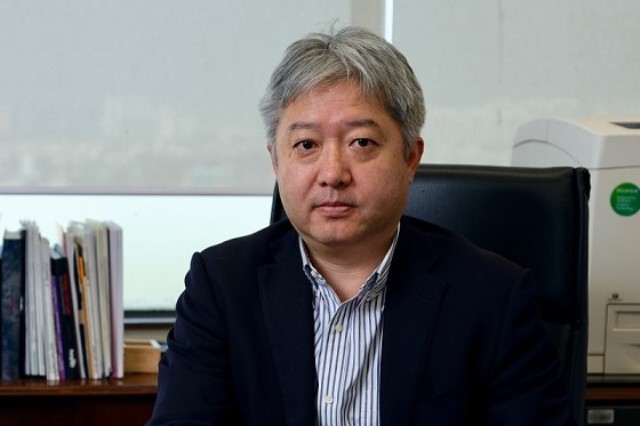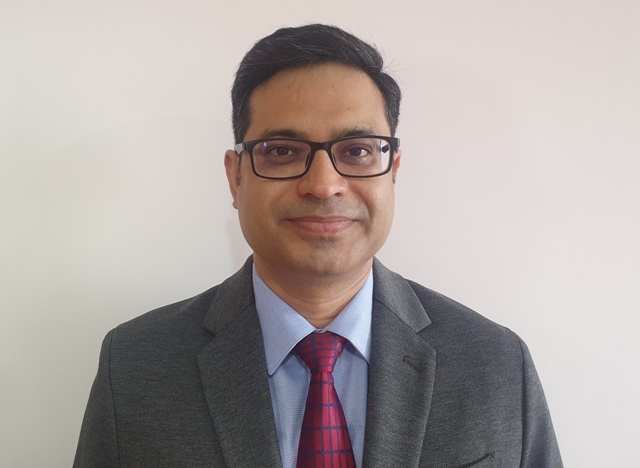Haruto Iwata is the Managing Director of Fujifilm India. He has been associated with Fujifilm for about three decades now and currently leading its business in India. Along with driving business, he has also been actively engaging in planning of company’s Corporate Social Responsibility (CSR) programmes in India. In this interview with TheCSRUniverse, he talks about various CSR initiatives of Fujifilm. He also shares insights on how the CSR journey for Fujifilm has evolved over the years in India.
Scroll down to know his thoughts on India’s CSR laws and suggestions to make it more effective in India.
Interview Excerpts: Haruto Iwata, Managing Director, Fujifilm India
Q: You have been undertaking multiple CSR projects. How has your CSR implementation been impacted / affected due to the COVID pandemic?
A: Fujifilm India’s approach to corporate social responsibility is to contribute to the sustainable development of society by putting our Corporate Philosophy into practice.
We have been taking various initiatives to offer aid to the people of the society towards the unprecedented crisis caused due to the pandemic outbreak. Recently, we announced the launch of our digital campaign on ‘Connecting Hearts’ which aims to spread positivity and joy by building a connection between patients and doctors. Committed to reduce anxiety among patients and help them combat COVID with congeniality and affection, we had introduced a unique patient-focused program by sharing Instax cameras and films at hospitals to spread smiles across doctors and nurses working on the frontline during these times.
Q: How are you continuing your CSR activities while adhering to the COVID protocols?
A: To provide efficient healthcare solutions at a lower cost, we are working together with the government’s Ayushman Bharat initiative. Additionally, with the Pradhan Mantri Surakshit Matritva Abhiyan, we even aim to provide assured, comprehensive and quality antenatal care by creating 1.5 lakh Health & Wellness Centers (HWCs) equipped with IBD/IVD, ECG and X-Ray Machine for basic screening.
For the sustainable development of society, we are also extending our contribution to various organisations, hospitals such as Moolchand Medcity in Delhi, Chengalpattu Medical College in Tamil Nadu, Gadag Institute of Medical Sciences in Karnataka, Kilpauk Medical College in Tamil Nadu and various NGO’s to curb the spread of these diseases.
Additionally, to combat the spread of the disease we have been supplying N95 respiratory & surgical face masks along with PPE kits to healthcare professionals across hospitals in Chandigarh, Mumbai, and many more.
Q: How has your company focus area for CSR evolved over the last 4-5 years?
A:In 2014, the Fujifilm Group had found its new corporate slogan, "Value from Innovation," which seeks to continue creating new technologies, products, and services that inspire and excite people everywhere, and empower the potential and expand the horizons of tomorrow’s business and lifestyle.
Under this slogan, we revised our CSR approach to express that we identify the social challenges and more actively seek their solutions. In the same year, we announced our Medium-Term CSR Plan, Sustainable Value Plan 2016 (SVP 2016), aimed at "solving social issues through our business operation" and our Medium-Term Management Plan, Vision 2016, to serve as the plan for concrete action in achieving the goal.
Based on the results and the experiences in the previous medium-term plans, in August 2017 we announced our new CSR Plan, Sustainable Value Plan 2030 (SVP 2030), and the new Medium-Term Management Plan, Vision 2019. SVP 2030 represents the long-term vision of the Fujifilm Group to contribute to creating a sustainable society. In order to achieve the goals, we will strive to become a company with a long scope of perspective, capable of contributing to the sustainable growth of society by creating "new values" through our business activities.

Q: How do you implement your various CSR projects in India?
A: In our CSR journey in India, over the years, we have associated with various NGOs and organisations for the betterment of the society at large.
For example, we collaborated with Indian Cancer Society to communicate that early detection of breast cancer can save lives. Under the association, 18 medical camps were conducted to generate awareness about breast cancer and breast self-examination for women of Delhi and NCR who are residing in slums and cannot afford quality treatment.
In addition to that, this year, Fujifilm ran "Parivartan" Campaign that illustrates the importance of regular breast cancer screening and breast self-examination in India. With this campaign, we aim to "Create Change" and spread awareness amongst young children, not only for their own well-being but also for them to act as an example to their mothers, grandmothers, and women in general to adopt timely preventive screening practices against breast cancer. We seek to reach out to young girls and women across the country with the message of "Early Detection - Saves Lives" in Breast Cancer through the campaign.
Another example is our #AaoBaatKarein campaign. This campaign was run in partnership with the Parwarish Cares Foundation an NGO, that is committed towards the welfare of children and women to sensitize children. We conducted awareness workshops in schools around the prevalent yet ignored issues of child sexual abuse in the society.
Q: What are your thoughts on CSR laws in India?
A: India was the first nation in the world to adopt the CSR legislation and it was a key move in introducing the subject and bringing about a positive change in the society. While the overall CSR spending has been increasing, it is also heartening to observe the increase in the number of companies going beyond the 2 per cent mandate and even companies who are not required to spend, have started allocating budgets for CSR. I believe that the government has put the pressure on organizations to spend their CSR budget judiciously through its revised regulations.
Further, during these testing times, the Government of India is also inspiring the companies to provide social support in this age of COVID-19. As per the report of the Ministry of Corporate Affairs dated March 23, 2020, all expenditures incurred on activities related to covid-19, will be added as the permissible avenues for CSR expenditure. This new development has been an added advantage for the betterment of the society during these times.
Q: What can be the changes in the current CSR law/provisions that can help corporates in being more productive and effective in the implementation of their CSR activities?
A: Although the new CSR legislation is making organizations re-evaluate their wealth for society’s well-being, CSR is more than mere charitable contributions. We need better legislation which encourages organizations to take responsibility for improving the communities in which they work. Also, the government must ensure that there is a mechanism for assessing the success of the CSR initiatives to determine how benefiting it is for both the people and the community.














.jpg)



